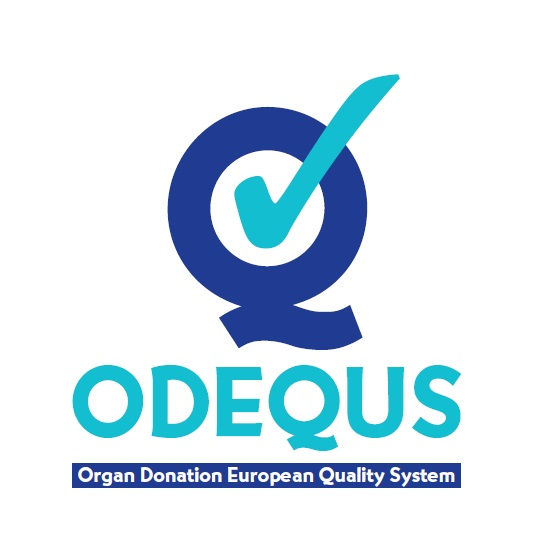Quality Control and Auditing
At DTI, we offer the opportunity for hospitals from all over to receive audits and quality controls. This is done to develop tailor-made plans for improvement through corrective measures in order to improve the overall quality of the care being delivered at these hospitals.
The Organ Donation European Quality System Project (ODEQUS) is a system that comprises Quality Criteria of best practices and Quality Indicators for donation after brain death, donation after cardiocirculatory death, and living donation. ODEQUS is based on the principles of good practices, ensuring that the quality and safety of the organs and services are provided and maintained.

ODEQUS provides the tools to make internal audits and perform evaluations, which are afterward analyzed by international experts who provide a quality plan with corrective measures for system improvement.
The implementation of ODEQUS works in a cyclical manner and is used to greatly increase the quality and safety of the process of organ transplantation wherever it is used. When used in hospitals, ODEQUS provides an initial evaluation, a plan designed to ensure improvement, the implementation of the plan, and a final evaluation.


Initial evaluation
An initial evaluation with ODEQUS provides an overall diagnosis of the current situation. A retrospective study of the deceased and living donation activity of the center in the last 12 months is performed to define a specialized plan for improvement that is unique to the center. This study uses the indicators selected in the system to collect data and later analyze the obtained results.
Improvement plan
Following the initial evaluation provided by ODEQUS, a plan for improvement is developed to form specialized working groups to implement corrective measures in concordance with the results to ultimately improve the system.
Improvement plan implementation
Once an improvement plan is designed, the local team will implement it. The implementation will be monitored by experts during the first 12 months of the execution. To ensure the quality of the execution with consideration of the local situation and characteristics, corrective measures for specific activities will be applied.


Final evaluation
Following the implementation of the improvement plan and corrective measures, a study is conducted to evaluate the results obtained. The study aims to check the accuracy of the application of corrective actions. Specifically, during this step, data obtained during the implementation period will be collected and analyzed. The analysis of this data will use the same set of ODEQUS indicators as selected for the initial evaluation. Finally, the results will be discussed with the local team, and final recommendations will be presented.




